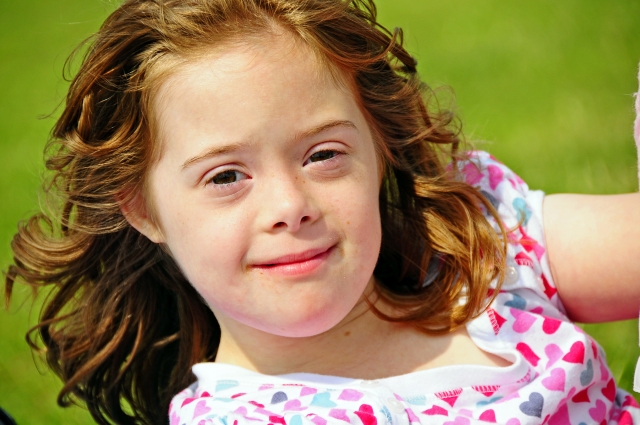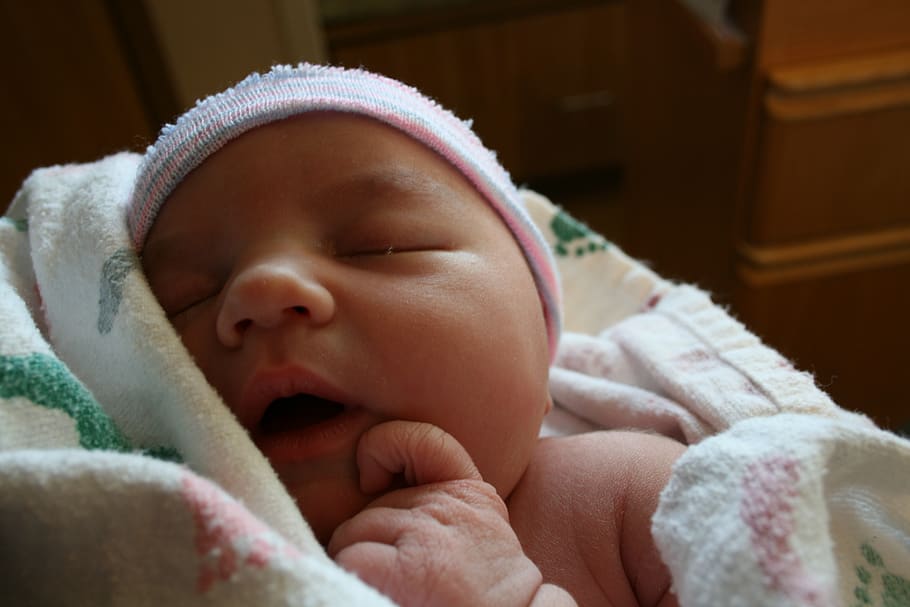Do Not Be Afraid: The Truth About Down Syndrome

Cardinal Müller’s Battle Cry for Humanity’s Hope
March 21, 2018
Cardinal Sarah: Goodness, Discipline, Knowledge—and Silence
March 21, 2018
Most people who want to abort babies with trisomy 21 are terribly misled.
By Mary Cooney, MercatorNet, Mar 21 2018
Recent efforts in Ohio and Utah to protect the life and rights of unborn babies with Down syndrome have many pro-abortionists up in arms. They are terrified that women might be forced to carry and deliver an intellectually disabled child they do not want.
As the mother of a baby with Down syndrome, I am saddened by their outrage. While some of these people admit they are selfish, most are terribly misled. Many people just don’t know the truth about this chromosomal disorder. They have no idea what a gift children and adults with Down are.
The real issue, of course, is that a baby is a baby whether in his mother’s womb or in his mother’s arms. All children, born or unborn, have the right to live and reach their full potential regardless of race, sex, or intellectual/physical ability.
But those who protest bans such as the Down Syndrome Nondiscrimination Abortion Act skirt the real issue and insist that women be given the choice to discard babies whom they fear will be too difficult to raise. Fear is the operative word here. Too many doctors and government agencies present a diagnosis in such a way that many mothers fear they will be unable to cope with their child’s disability or that their children will suffer. For example:
-
British actress Sally Phillips, who has a son with Down, told members of the Church of England’s General Synod last month that women were “over and over told by implication but also overtly that they will not be able to cope with a Down’s Syndrome baby.” A pregnant friend had been “rung nine times during her pregnancy to be offered and offered and offered a termination in case she changed her mind,” she told a small group.
-
“He won’t develop properly, they said, or play games like other children. I can’t tell you how many times I heard the words can’t and won’t,” Debbie Antonelli reported recently in the Washington Post.
-
Another mother said she had been informed by a medical student several years ago that his professor told students they had a “responsibility” to encourage parents to terminate babies with a Down syndrome prenatal diagnosis.
-
Writing in the scientific journal, Nature, in 2011 doctors Linda and Edward McCabe cited examples of government agencies that provide “overly negative and inaccurate information” about Down syndrome, intended to force a woman to “choose” termination should her child be diagnosed with the disorder.
Faced with harrowing prospects of life with a disabled child and with pressure from doctors to terminate such pregnancies, it’s no wonder that so many women choose to end the life of their unborn babies. In the U.S. about 67 percent of babies diagnosed with Down are aborted. In England the abortion rate these babies is 90 percent. And in Iceland, a prenatal diagnosis is synonymous with a death sentence.
The whole truth: Down is compatible with happiness
These astronomically high abortion rates point to the fact that most women are not given the complete truth about the syndrome. Sometimes the truth is even suppressed, as in France where this ad showing happy children with Down was banned.
Parents deserve to be given a complete and realistic picture of what raising a child with this disability may look like. In addition to up-to-date medical information, parents also need to be given information about the resources and supports that are available to them.
In my state as in most others, this includes government-funded home visits by nurses, physical, occupational, and speech therapists, and vision specialists until children enter school. There they receive therapies and educational supports as needed. We also have an extensive support network of families that have children with Down, families who see beyond a medical diagnosis and appreciate the beauty and dignity of the entire person.
Some women choose to abort because they don’t want their child to suffer. Yet the reality is that all our children will suffer at some point in their lives. I know how painful it is to find out one’s child will have to face difficulties above and beyond the ordinary. But we cannot determine the value of a person’s life or base his potential for happiness on his intellectual or physical abilities.
In fact, contrary to what many people think, a study published in the American Journal of Medical Genetics shows that most people with Down Syndrome are happy.
“Among those (284 DS individuals) surveyed, nearly 99% of people with DS indicated that they were happy with their lives, 97% liked who they are, and 96% liked how they look. Nearly 99% people with DS expressed love for their families, and 97% liked their brothers and sisters… Overall, the overwhelming majority of people with DS surveyed indicate they live happy and fulfilling lives.”
The moral of the story? A Down syndrome diagnosis does not mean a life of misery; rather, the chances are that your child will be happy.
So much for individuals with Down. What about their parents and parents and siblings? A survey of 2044 parents of DS children showed that these parents are glad they chose life:
“99% reported that they love their son or daughter; 97% were proud of them; 79% felt their outlook on life was more positive because of them; 5% felt embarrassed by them; and 4% regretted having them…. The overwhelming majority of parents surveyed report that they are happy with their decision to have their child with DS and indicate that their sons and daughters are great sources of love and pride.”
And a survey of 822 brothers and sisters shows that they feel having a sibling with Down has enriched their lives:
“More than 96% of brothers/sisters… had affection toward their sibling with DS; and 94% of older siblings expressed feelings of pride. Less than 10% felt embarrassed… Among older siblings, 88% felt that they were better people because of their siblings with DS, and more than 90% plan to remain involved in their sibling’s lives as they become adults. The vast majority of brothers and sisters describe their relationship with their sibling with DS as positive and enhancing.”
People with Down syndrome can have fulfilling lives
It is clear that despite their health problems, developmental delays, and intellectual disabilities, individuals with Down syndrome and their families can and do enjoy happy lives, perhaps even more so than the general population.
A diagnosis need not be as devastating as it used to be. Thirty years ago, life expectancy for a child born with Down was only about 25 years. Today, on average, such a child will enjoy far better health, quality of life, and life expectancy of 50-60 years. In a TED talk entitled All Lives Matter, Karen Gaffney, a woman with Down said:
“There was a time when people like me were institutionalised. When I was born, the doctor predicted that I would be lucky to be able to tie my own shoes or write my own name – he forgot to mention the part about me swimming the English Channel.”
And:
“We have begun to see more and more young people with Down syndrome graduating from high schools, some going on to higher education and learning employable skills. There are accomplished musicians, artists, golfers, models, actors and public speakers, as well as good employees making significant contributions to their companies and communities. These are all role models for what can be done in spite of one extra chromosome.”




